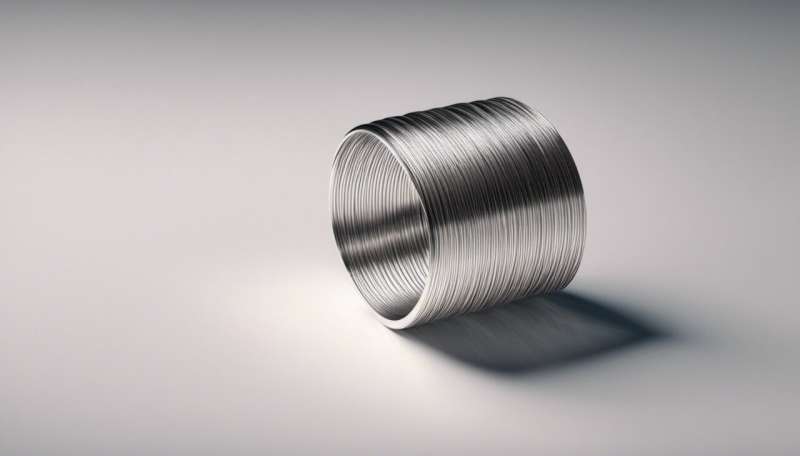Credit: AI-generated image (disclaimer)
Once upon a time, fingerprint sensors were only associated with law enforcement and corporate security. Now, they've become so commonplace that they are even used in mobile phones. The biometric technologies found in such sensors are mostly based on optical or silicon devices. However, these are hampered by various limitations. Optical sensors are bulky, inflexible and costly. While not as expensive, silicon sensors are also inflexible and have a small acquisition surface.
The EU PYCSEL project overcame these drawbacks using flexible electronics, also known as thin, organic and large-area electronics (TOLAEs). TOLAE sensors are thin (less than 200 μm), flexible and low-cost, with a high resolution (500 ppi) and a large active area (76 mm x 81 mm). With this technology, the project team developed a thermal fingerprint sensor that isn't bulky and which provides high-resolution fingerprint images at a reduced cost. This makes it well suited for applications such as smart cards and automotive contexts like steering wheels or gears.
The device is a one-finger sensor with 256 x 256 pixels at 500 ppi. It is also the first fingerprint sensor in the world that combines printed pyroelectric polyvinylidene fluoride-based layers above an indium gallium zinc oxide thin-film transistor active matrix on a flexible plastic foil. The device is an active thermal fingerprint sensor. It has ridges touching the pixels, pumping heat and therefore creating a temperature difference with valleys that don't touch the sensor.
The sensor will be presented and demonstrated at this year's EAB Research Projects Conference that is going to be held in Darmstadt, Germany, between 16 and 18 September. The conference focuses on research from all over Europe in the field of biometrics and identity management. It's currently the largest event of its kind funded by the EU and draws participants from academia, industry and public institutions.
More information: PYCSEL project website: www.pycsel-project.eu/
Provided by CORDIS
























